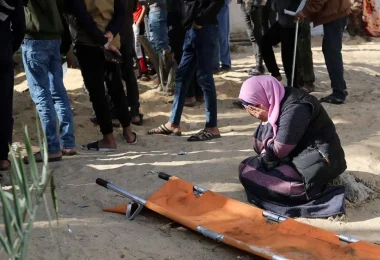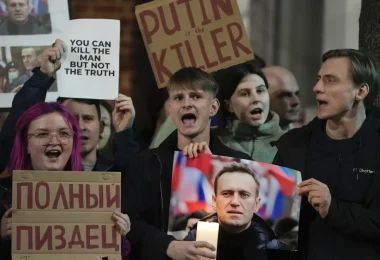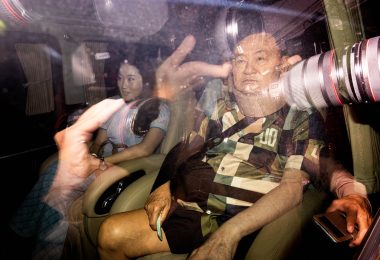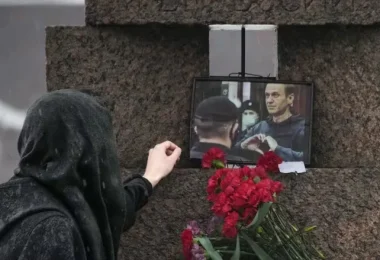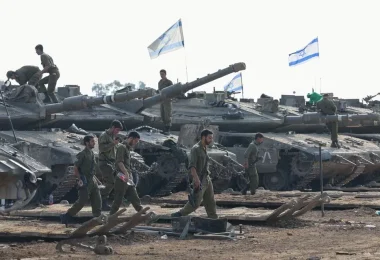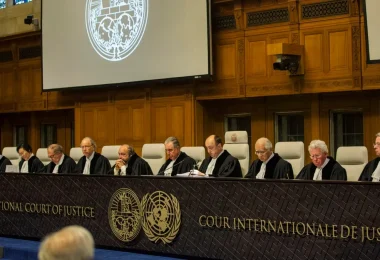The International Court of Justice (ICJ) has issued a pivotal ruling, ordering Israel to take comprehensive measures to prevent acts of genocide against Palestinians in Gaza. This ruling, a response to South Africa’s allegations of genocide by Israel – which Israel firmly denies – marks a significant moment in international law and diplomacy.
On Friday, the ICJ, the principal judicial organ of the United Nations, declared that Palestinians have a right to protection from acts of genocide. The court instructed Israel to use all its powers to prevent such actions and facilitate the entry of crucial humanitarian aid into the war-ravaged region. However, the court did not mandate an immediate ceasefire in the ongoing military operations against Hamas in Gaza, which have reportedly resulted in over 26,000 deaths.
Judge Joan Donoghue, the President of the ICJ, emphasized the court’s acute awareness of the human tragedy unfolding in Gaza since the onset of the war. She expressed deep concern over the continuing loss of life and human suffering.
South Africa’s case against Israel, which commenced earlier this month, sought provisional measures to protect the rights of the Palestinian people under the 1948 Genocide Convention. Among the requested measures were the suspension of military operations by Israel in Gaza and taking all reasonable steps to prevent genocide.
The ICJ’s provisional measures include mandates for Israel to prevent the killing or injuring of Gazans, avoid actions calculated to destroy Gaza’s populace wholly or partly, and prevent conditions intended to inhibit births among Gazans. These measures, considered obligatory for implementation, underscore the gravity of the situation, though the court lacks mechanisms for enforcement.

A general view of a tent camp housing displaced Palestinians, as smoke rises in the distance due to an Israeli ground operation in Khan Younis, amid the ongoing conflict between Israel and the Palestinian Islamist group Hamas, as seen Rafah in the southern Gaza Strip, January 22, 2024. REUTERS/Ibraheem Abu Mustafa.
Israel’s defense, arguing that its actions against Hamas were purely defensive and not aimed at the Palestinian people, suggested that provisional measures would impede its obligations to defend its citizens.
In response to the ICJ ruling, Israeli Prime Minister Benjamin Netanyahu strongly condemned the genocide allegations, calling them “false” and “outrageous.” He stressed Israel’s war against Hamas militants, not Palestinian civilians, and reiterated Israel’s commitment to avoiding civilian casualties despite Hamas’s tactics of using civilians as shields. “Never Again,” Netanyahu affirmed, referencing the Holocaust and vowing to defend Israel and its people.
Additionally, in a contentious climate, this ruling has elicited varied reactions. Negev, Galilee, and National Resilience Minister Yitzhak Wasserlauf, from the ultranationalist Otzma Yehudit party, dismissed the ICJ’s ruling, while National Security Minister Itamar Ben Gvir criticized the court as “antisemitic.” Conversely, Hamas official Sami Abu Zuhri hailed the decision as pivotal in isolating Israel and exposing its alleged crimes in Gaza.
South Africa has lauded the ruling as a decisive victory for international law. However, despite the court’s clear directives, the path ahead remains complex, with deep-rooted political, humanitarian, and legal challenges persisting.


